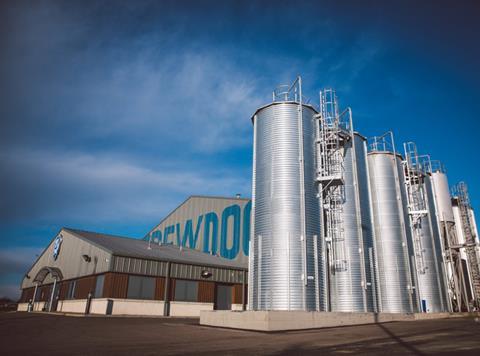
The Great British Beer festival, which bills itself as the “biggest pub in the world”, opened its doors to the public today. More than 55,000 thirsty punters are expected to come through the doors.
The outlook for normal-sized pubs isn’t so rosy though, with the Campaign for Real Ale (CAMRA) announcing today that 29 pubs a week are closing across the UK. An interesting article in yesterday’s Financial Times lays the blame at the saloon door of the usual suspects – the smoking ban, cheap alcohol in supermarkets, the disintegration of the link between brewer and pub tenant.
Retailers are even stealing the CAMRA market. Where once I’d have to venture into the local boozer, now Lidl has a range of 48 UK regional specialist beers, and I can get cases of the stuff, curated from around the world, delivered from punchy new start-ups that bricks-and-mortar stores couldn’t hope to match on price.
Even more interestingly, the same article proclaims the rise of microbreweries – the tiny engines driving a much larger movement. One new microbrewery opens every two days, the government claims, even as, overall, alcohol consumption falls. So what’s going on?
As an ardent craft beer fan and a former US resident, I’ve noticed a change in habit very prominent in the US slowly making its way over here. As craft beer falls in price to a point where it can compete with the big boys, yet remains a relatively exclusive, localised product, demand for it soars. In the US, this trend showed itself in two ways – the rise of in-brewery bars and takeaway beer.
In-brewery bars are fast becoming a Saturday tradition in America. Save yourself on Friday night after a busy week at work, and instead go straight to the source of your favourite craft beer on a Saturday. Direct sales to the public without distribution costs means a locally-made, small-batch pint that’s about half the cost of a brand-name beer in pubs.
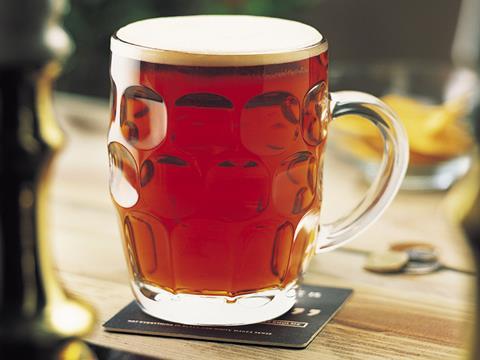
The explosion of this market struck me when I made an effort to visit the Bermondsey Beer Mile, a regular Saturday morning event by London Bridge. Several craft brewers have set up in the railway arches of Bermondsey industrial estates, and on Saturdays they fling open the doors to greet the customers. On the weekend I went, all the queues were out the door, the wait times for a pint were lengthy, and the cheap independent beer was flying. It’s big, and with a hold on the exact sort of market abandoning traditional pubs, it’s only going to grow. US-style craft beer eschews the staid image of real ale, associated in the UK with the sort of pubs that are struggling now, and are seen as an older consumers’ market. Craft beers are now.
The second phenomenon in the US, takeaway beer, isn’t developed here yet, but the first whispers have begun to sneak out. This is basically buying beer in bulk, either direct from a microbrewery or from a specialist retailer, at huge discounts. In the US, entire bars are set up to offer local beer on tap to take home in up to two-litre containers (which, unfortunately for the UK market, are called growlers). The first “growler bar” in the UK is opening in Clapham very soon, an offshoot of Balham’s extraordinarily successful craft beer retailer We Brought Beer, which offers three beers on tap for takeaway in-store. While this market is virtually zero in the UK at the moment, if it catches on in the same way it has in the US, it’ll be another shot in the arm to the craft beer market.
So how have traditional pubs adapted in the US? It was striking, during my time there, the extent to which local bars offered local beers on tap, and it’s been equally striking, since my return, how few bars offer a similar service here. Successful examples include London’s Craft Beer Co, now with several locations, and which is always packed out whenever I pass my local branch in Brixton.
If your average British boozer is to be saved, then, perhaps one of many possible answers lies in tempting a new generation through the doors with the procurement of reasonably priced craft beer on tap. Until then, you’ll find me in a microbrewery.







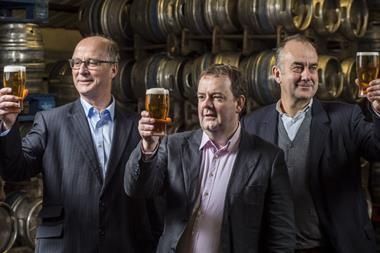
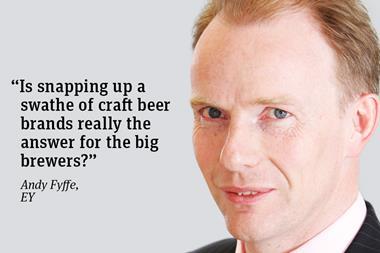
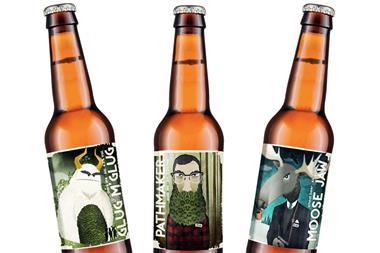









No comments yet